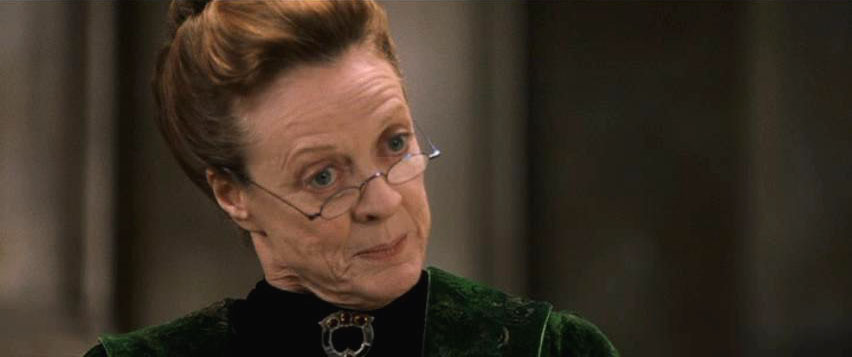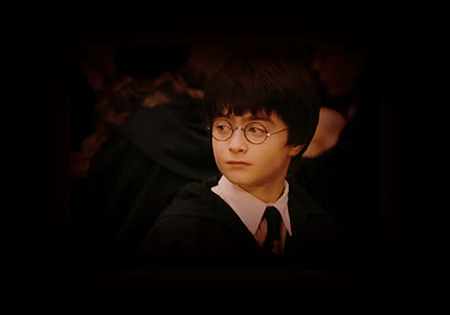British Principal Says Harry Potter & Lord of the Rings Encourage Difficult Behavior in Children
Graeme Whiting, headmaster at the Acorn School in Nailsworth, England has had a blog post go viral in which he claims Harry Potter, Lord of the Rings, and more encourage difficult behavior in children.
In the post on the private school’s website titled “The Imagination of the Child,” Whiting never really gets specific on what kind of difficult behavior the content of these books might cause but starts off by discussing how events in our childhood shape our brains, and how therapists around the world now make a living trying to make sense of it all for us. Things quickly devolve from there with him citing “particularly inappropriate images or text that confuses their imagination, as they do not have thinking brains until, at the earliest, fourteen years of age.”
Sure, not all images and text are suitable for all kids but what does Whiting single out? Harry Potter, The Lord of the Rings, Game of Thrones, The Hunger Games, and… anything by Terry Pratchett, apparently.
Now to me anyway, one of those is certainly not like the other and can be considered definitively for adults but peruse what Whiting thinks are appropriate works for children.
I stand for the old-fashioned values of traditional literature, classical poetry, Wordsworth, Keats, Shelley, Dickens, Shakespearean plays, and the great writers who will still be read in future years by those children whose parents adopt a protective attitude towards ensuring that dark, demonic literature, carefully sprinkled with ideas of magic, of control and of ghostly and frightening stories that will cause the children who read them to seek for ever more sensational things to add to those they have already been exposed to. What then of their subconscious minds?
Yes. William Fucking Shakespeare.
The author who included tons of sex, death, violence, and magic in his stories. (And yeah, those other authors weren’t ignoring that stuff either.) “I want children to read literature that is conducive to their age and leave those mystical and frightening texts for when they can discern reality, and when they have first learned to love beauty,” he writes. What gives?
Harry Potter, Lord of the Rings, Game of Thrones, The Hunger Games, and Terry Pratchett, to mention only a few of the modern world’s ‘must-haves’, contain deeply insensitive and addictive material which I am certain encourages difficult behaviour in children; yet they can be bought without a special licence, and can damage the sensitive subconscious brains of young children, many of whom may be added to the current statistics of mentally ill young children. For young adults, this literature, when it can be understood for what it is, is the choice of many!
Buying sensational books is like feeding your child with spoons of added sugar, heaps of it, and when the child becomes addicted it will seek more and more, which if related to books, fills the bank vaults of those who write un-sensitive books for young children!
Don’t forget the covers of the books are also to blame, “Such colourful covers attract children to the point of mesmerising them, and they make demands of their parents stating that they want one because every other child at school has one!”
Whiting doesn’t give any statistics or studies to back up his thinking that these books somehow cause a mental detriment to children. And his conclusion isn’t that dark stories are inherently bad but that parents need to be involved in their children’s lives which, duh. Though what he finds objectionable in the Harry Potter series and not say, MacBeth, remains to be seen.
The really odd thing is, Whiting came to these thoughts because he reminisced on his own real-life traumatic experiences, not those he had from reading books.
This morning, I recalled the many memories that lie deep in my own subconscious; the deaths of my loving parents, my three brothers, my wife and perhaps even more deeply entrenched are the experiences I had as a young child growing up after the war in a very different England. I recalled vivid pictures of the school bullies, and of the grim-faced teachers as they beat me. I can remember their smelly clothes, and can recall those smells and facial grimaces when they carried out the barbaric punishment that was meted out to many young, poor children, in the nineteen-fifties. I have dealt with those images and memories without the help of a therapist and I feel I have put them away from my daily life, to be recalled if they need to be.
Looks like perhaps Whiting is trying to work out his own shit, very publicly.
J.K. Rowling, fairly outspoken on Twitter, has not commented on the matter. However, she did retweet an account today quoting Doris Lessing, “Parents should leave books lying around marked ‘forbidden’ if they want their children to read” which may or may not be a dig. I kind of hope it is.
One final thought, Whiting admits to having a limited view of today’s literature. “At school I had a passion for literature; indeed I felt that by the age of thirty I had read all the books I wanted to read. ” I feel sad for him.
(via LA Times)



The school’s website boasts about how they build “freethinking students.” Heh.
Ah, classic ‘its good because its old’ logic. XD
Also I just want to point this out as everyones focused on Rowling, but Terry Pratchett’s also done a number of children and young adult books. Such as Tiffany Aching’s series.
I particularly like “her child who by then will certainly not be seeking sensible literature, but will almost certainly follow the masses, the modern trends, for whom reading will have become a thing of the past.”
Yup. In 13 years, reading with have become a thing of the past.
…wait…
…so what’s he worrying about then, if teenagers are not even going to be reading at all? This makes all his worries about books a non-issue!
So, if kids don’t have “thinking brains” before they’re 14, what do they have? Zombie brains? A hive mind? Are they just a bundle of nerves that automatically react to stimuli? Are they mind controlled by aliens?
WTAF? I think somebody never got his “thinking brain” at fourteen like the rest of us. Confession: I actually snuck in and swiped a thinking brain when I was eight.
This is horrible…i don’t think this person has actually read a book before…
He says he read all the books he would want to read in his life at the age of 30 so all evidence points to him being the worst.
O_o what?! where he say that?
Last paragraph. He’s trying to spin it as a good thing but…no just…no.
wow…
Bah!
Good-freaking-grief, it’s like a Seduction of the Innocent reboot!
Compare that quote to what Dr. Wertham said in 1954:
So in a a way the principal is right. Many of the books he describes encourages “Difficult” behavior. Harry Potter, the Hunger Games And Sir Terry Pratchett’s work in particular all encourage questioning and in some cases outright rebelling against authority. However the thing the principal is missing is that this is not a bad thing.
Sure it can be annoying if you are the authority but if you think that questioning authority isn’t an essential skill for both children and adults that says more about you as an authority figure then it does about these books.
William Shakespeare? William Shakespeare?!
Please go sit down and read Titus Andronicus, the play that openly laughs at Game of Thrones both in terms of lascivious behavior and body-count, or MacBeth with its witchcraft, or A Midsummer Night’s Dream for light fantasy, and the author of those is who she’s holding up?
https://cdn2.rsc.org.uk/sitefinity/images/productions/productions-2009-and-before/titus-andronicus-1955-2006/titus-andronicus-2006-blood-541×361.jpg
Is nightmare fuel, by any other name, not as terrifying?
What they say is true. The Bard is the author seemingly everyone talks about and seemingly nobody has bloody read.
“I felt that by the age of thirty I had read all the books I wanted to read.”
That tells you everything you need to know about this “educator”.